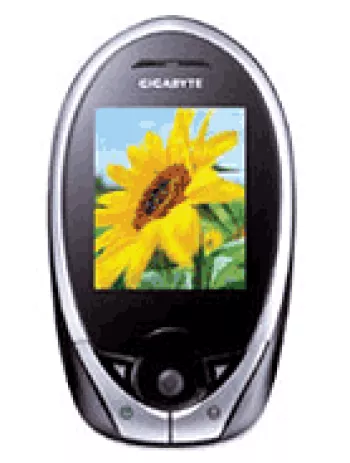
Design and Build Quality
The Gigabyte g-X5 boasts a compact and robust design, reflecting the typical aesthetics of the mid-2000s mobile phones. With dimensions of 96.7 x 54 x 25.6 mm and a weight of 106 g, this device offers a solid feel while being lightweight enough for everyday portability. The black color variant provides a classic and understated look, suitable for both professional and casual settings. The use of a Mini-SIM card indicates its compatibility with older SIM card sizes, and the overall ergonomic design ensures ease of handling.
Display Features
The device comes with a 2.0-inch TFT display that supports 2.6 million colors, delivering vibrant visuals for its time. The screen resolution of 176 x 220 pixels (~141 ppi density) ensures clear images and text, suitable for daily use, although it may seem basic compared to modern smartphone standards. The screen-to-body ratio of approximately 24.1% highlights the large bezels typical of the era, providing ample space for branding and physical controls.
Camera Capabilities
The Gigabyte g-X5 includes a basic 1 MP main camera, a feature that was quite standard in the mid-2000s for capturing spontaneous moments. It also supports video recording, enabling users to capture short clips. While it may not compete with modern smartphone cameras, it represented a significant technological advance at the time for integrating multimedia features into mobile devices.
Network and Connectivity Options
Supporting GSM technology, the g-X5 was designed to operate on 2G networks with bands ranging between GSM 900, 1800, and 1900, catering to a broad audience worldwide. This model lacks advanced connectivity options such as Bluetooth, WLAN, and USB, reflecting its basic design focus. Its communication functions are confined to essential messaging services such as SMS, EMS, and MMS.
Battery Life
The removable Li-Ion 700 mAh battery provides reasonable usage time, with a standby capacity of up to 240 hours and talk time of up to 5 hours. These specifications were typical for feature phones of its era, offering users enough battery life for basic daily operations without frequent recharging.
Memory and Storage
Equipped with a miniSD slot, the Gigabyte g-X5 allows for expandable storage to accommodate additional media and files, which was a valuable feature in a time when internal smartphone memory was limited. The phonebook capacity of 500 entries ensures users can conveniently store all necessary contacts. In addition, a call log storage of 20 recent dialed, received, and missed calls ensures effective basic call management.
Sound and Multimedia
While the Gigabyte g-X5 lacks a loudspeaker and 3.5mm audio jack, it supports vibration alerts and downloadable polyphonic and MP3 ringtones for personalized sound settings. Although the absence of a loudspeaker might limit hands-free usage, these features ensure users can receive alerts and notifications in a customizable manner.
Software Features and User Interface
This feature phone runs a basic operating system designed to provide essential functionality with a straightforward user interface. The inclusion of a WAP 2.0 browser allows for limited internet access, primarily for browsing lightweight mobile sites. Basic games and Java support enrich the user experience, adding entertainment options to the mix.
Additional Features
Despite its limited feature set, the Gigabyte g-X5 incorporates essential elements for communication and functionality in a basic mobile device. The support for Java applications potentially allows for minimal extension of functionalities through third-party apps, although the actual application support remains limited by the device's hardware capabilities.
Conclusion
In conclusion, the Gigabyte g-X5 was a functional and stylish feature phone suitable for users during its time of release in 2005. Despite being discontinued, it remains a significant example of mobile phone technology development during a pivotal time before the widespread adoption of smartphones. Its core functionality, combined with the simplicity it offered, made it a reliable choice for users seeking essential mobile communication and multimedia functionalities.
Key Features of Gigabyte g-X5
- Compact size with dimensions of 96.7 x 54 x 25.6 mm and lightweight at 106 g.
- TFT display with support for 2.6M colors.
- Expandable memory with a miniSD card slot.
- Reasonable camera capabilities with a 1 MP main camera and video recording.
- Messaging support including SMS, EMS, and MMS.
- Java-enabled for running applications and games.
- Removable Li-Ion 700 mAh battery with talk time up to 5 hours.
Gigabyte g-X5 Disadvantages
- Lacks EDGE support for faster data connectivity.
- Screen-to-body ratio is quite low at ~24.1%.
- Single 1 MP main camera with limited resolution.
- No selfie camera available.
- Does not have a loudspeaker.
- No 3.5mm headphone jack for audio output.
- Absent of any WLAN (Wi-Fi) capability.
- No Bluetooth support for wireless data transfer.
- No GPS for positioning or navigation services.
- Does not feature a radio.
- No USB connectivity for wired data transmission or charging.
- Tiny 700 mAh battery may lead to limited battery life under active use.
View Also
More Phones
All Rights Reserved +13665 Phones © Mobilawy 2025

























